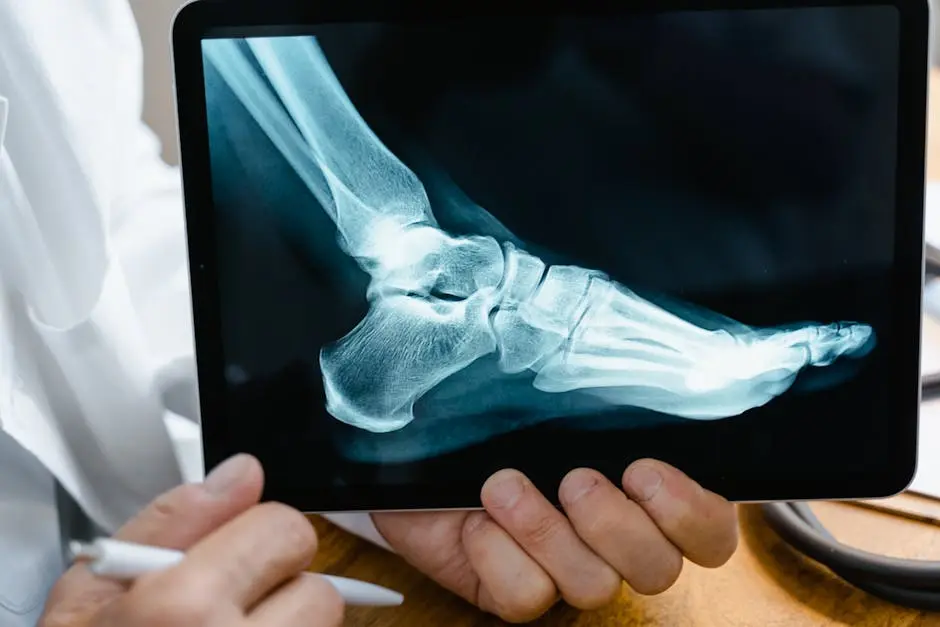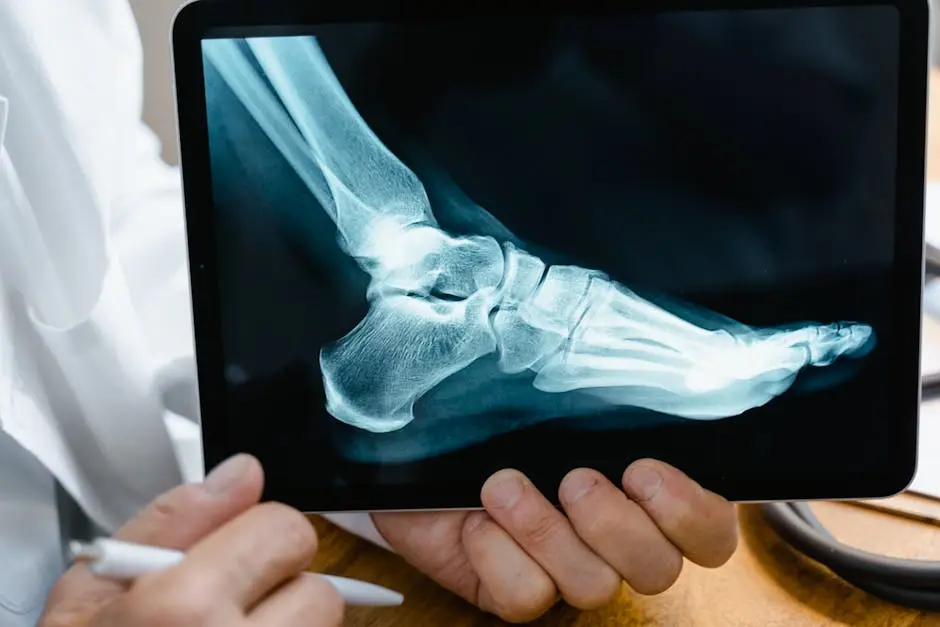Considering sinus relief surgery can be overwhelming, but asking the right questions can help ease your mind and ensure you’re well-prepared. In this article, we’ll explore essential questions to guide your pre-surgery journey, leading to informed decisions and a smoother experience.
1. What Are the Symptoms Indicating Surgery Is Necessary?
Understanding the symptoms that may necessitate surgery is crucial. Knowing when to seek surgical intervention can lead to better health outcomes in the long run.
Common symptoms such as chronic sinus infections, severe nasal obstruction, or persistent facial pain can often indicate the need for more than just medical treatment. Each sign can be a hint that your body is trying to tell you something important. Don’t ignore them! If you’ve been experiencing these issues despite other treatments, it may be time to explore surgical options.
Moreover, reflect on how these symptoms affect your daily life. Are they disrupting your sleep, work, or even your social interactions? If you feel your quality of life is diminishing, that’s a signal that a conversation with your healthcare provider about sinus relief surgery is warranted.
2. What Are the Benefits of the Procedure?
Discussing the expected benefits of sinus relief surgery can help clarify what you stand to gain from the procedure, including improved quality of life.
Post-surgery, many patients report significant improvements. Imagine breathing easily once more—free from congestion or post-nasal drip. Enhanced smell and taste are also common benefits that many eagerly anticipate after surgery. Isn’t it exciting to think about enjoying your favorite foods fully again?
Additionally, reduced occurrences of sinus infections can lead to fewer sick days and less reliance on medications. With these health improvements, you may find yourself reclaiming the activities you love without the burden of sinus-related issues. That renewed sense of freedom and vitality can make all the difference.
3. What Are the Risks Involved?
Every surgery has risks. This section will outline potential complications so you can weigh the benefits against the risks.
While sinus relief surgery often leads to positive outcomes, it’s important to be aware of possible risks. Complications can range from infections to bleeding, and in rare cases, can lead to more serious issues. Knowing these risks empowers you to engage in an informed discussion with your surgeon.
Moreover, consider how your individual health conditions may influence the likelihood of these risks. Your surgeon can help provide insights based on your personal medical history and overall health. Ultimately, the goal is to ensure that the potential benefits outweigh the risks for you.
4. How Long Is the Recovery Period?
Understanding the recovery timeline will help you plan your post-surgery care and expectations for returning to daily activities.
Recovery times can vary based on the complexity of your surgery and your body’s healing ability. Typically, patients can expect some swelling and discomfort for the first few days, but many return to light activities within the first week. Being aware of these timelines allows you to arrange support, whether it’s help with household tasks or managing child care during the initial recovery phase.
Of course, everyone heals differently. Creating a supportive environment at home can promote a smoother recovery. Knowing you have the time and space to heal can ease your mind and enable you to focus on your recovery effectively.
5. What Type of Anesthesia Will Be Used?
It’s important to know whether you will be under general anesthesia or local anesthesia, and what that means for your surgery experience.
Understanding anesthesia can help alleviate anxiety surrounding the procedure. If your surgery is done under general anesthesia, you’ll be completely unconscious, making it easier for the surgeon to perform the procedure. However, local anesthesia might be used if your surgery is less invasive, allowing you to remain awake yet relaxed. Knowing what to expect can help put your mind at ease as you prepare for surgery.
6. What Is the Experience of the Surgeon?
Inquiring about your surgeon’s experience and success rates can provide reassurance and help you feel more confident in your choice.
Your surgeon’s experience is a critical factor in the outcome of your surgery. Don’t hesitate to ask about their training, the number of procedures they’ve successfully completed, and their approach to patient care. Having this information can help build trust, as you’ll want to feel secure in the skills of the person performing your surgery.
7. Are There Alternatives to Surgery?
Exploring non-surgical treatment options can help you determine if surgery is indeed the best course of action for your symptoms.
Before deciding on surgery, it’s wise to evaluate all available options. Your provider may discuss medications, lifestyle changes, or therapies like allergy shots that could potentially alleviate your symptoms. It’s a collaborative process; working together with your healthcare provider can help you make the best choice for your individual situation.
8. What Should I Expect During the Procedure?
Having a clear picture of what will happen during surgery can alleviate anxiety and better prepare you for the experience.
While each procedure can differ, understanding the general steps helps demystify the process. Your healthcare team will ensure you’re comfortable and informed at each step. Knowing the details helps to ease fears, making the experience less intimidating.
9. Will There Be Follow-Up Appointments?
Knowing the importance of follow-up care can help you stay on track with your recovery and address any ongoing issues.
Follow-up appointments are vital in ensuring a successful recovery. These visits allow your surgeon to assess your healing progress and manage any concerns that may arise. Don’t overlook the importance of these appointments; they’re an essential component of your path to wellness.
10. What Are the Costs Involved?
Discussing costs upfront can help you budget effectively and avoid unexpected financial burdens post-surgery.
Understanding all costs associated with your sinus relief surgery is crucial. This might include procedure fees, anesthesia costs, and potential follow-up consultations. Don’t hesitate to ask your provider about estimates and whether your insurance will cover any of these costs. Planning ahead can ease financial stress and allow you to focus fully on your recovery.
11. How Should I Prepare for Surgery?
Discussing pre-surgery preparations will ensure that you’re fully ready for the procedure, both physically and mentally.
Preparing for surgery can involve several steps. Your provider may suggest avoiding certain medications, arranging transport for post-surgery, or even planning for a recovery space in your home. The more you can prepare in advance, the smoother your experience will be. Take the time to gather resources and support to create a nurturing environment for yourself.
12. What Signs Should I Watch For Post-Surgery?
Understanding warning signs that may indicate complications is essential for a quick recovery and peace of mind.
After surgery, being vigilant about your healing process can aid in a smoother recovery. Watch for symptoms like high fever, excessive swelling, or unusual pain, and don’t hesitate to reach out to your healthcare provider if something doesn’t feel right. Having a clear action plan regarding whom to contact in case of concerns can be incredibly reassuring.
13. What Can I Do to Aid My Recovery?
Implementing self-care strategies post-surgery can significantly enhance recovery and improve your overall wellbeing.
Post-surgery, following medical advice for self-care is crucial. This can include rest, proper hydration, and adhering to a prescribed medication schedule. Additionally, engaging in gentle activities like walking can be beneficial, provided your healthcare provider gives you the go-ahead.
14. How Will This Affect My Daily Life?
Discussing lifestyle changes can prepare you for how surgery may affect your routine and provide guidance for a smooth transition.
Understanding how sinus relief surgery could alter your daily life is vital. While many patients experience notable improvements, some may need to adjust certain activities or develop new routines to maximize their health benefits. Embracing these changes can lead to a more fulfilling and healthier life post-surgery.
15. What Should I Know About Pain Management?
Knowing pain management options available post-surgery will help you feel more comfortable and prepared for your recovery journey.
It’s important to discuss pain management with your healthcare provider, as they will help tailor a plan specifically for you. Understanding the different medications or therapies available, and their potential side effects, can provide peace of mind before your surgery. Remember, it’s perfectly okay to express your concerns about pain to ensure you receive the best care possible.





